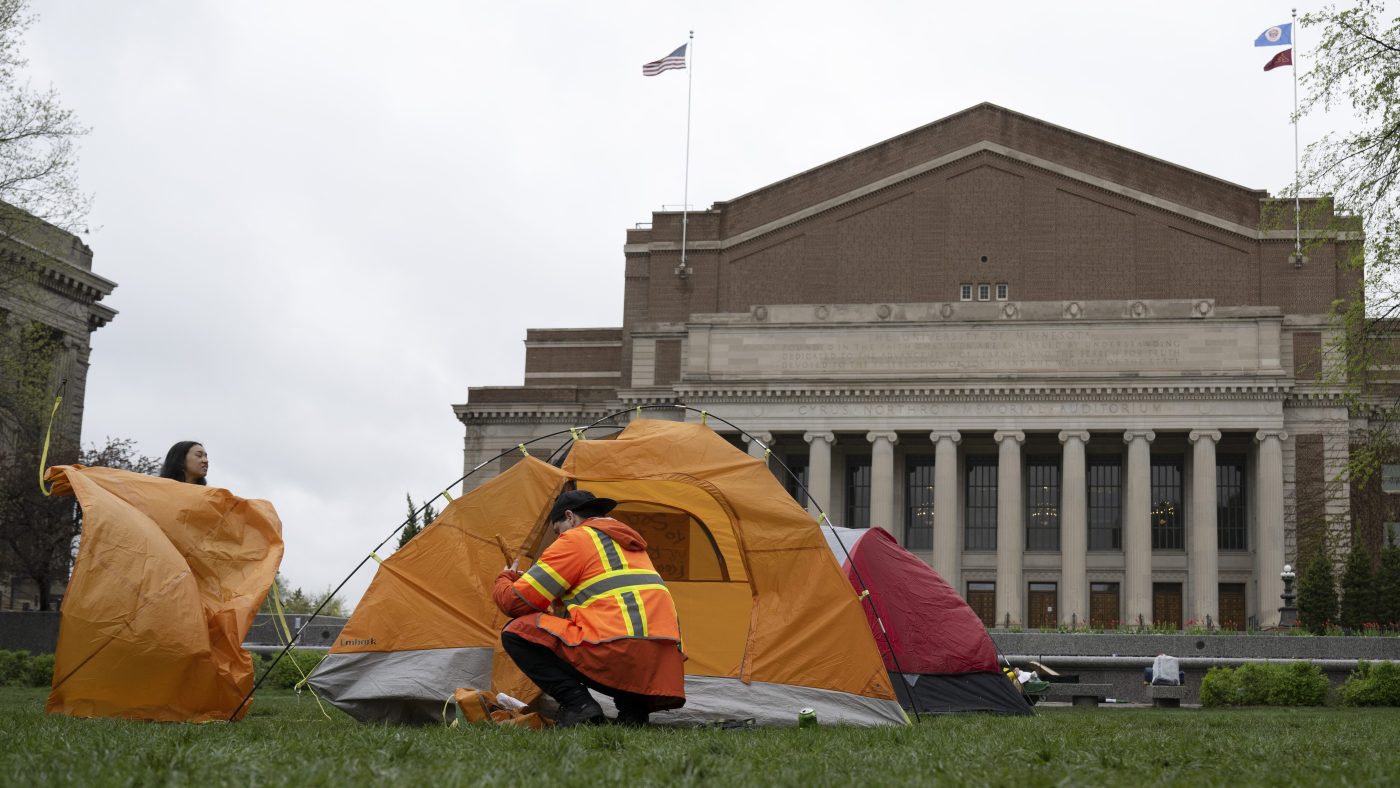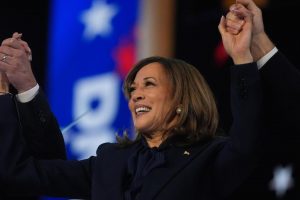
U regents reject call to divest financial stakes in Israel
In a decisive 8-1 vote Tuesday morning, the University of Minnesota’s Board of Regents chose not to divest from its financial investments in Israel and instead adopted a position of “institutional neutrality.”
Board Chair Janie Mayeron introduced the resolution, which was subsequently presented by university President Rebecca Cunningham. Regent Robyn Gulley cast the sole dissenting vote, while Regents Ruth Johnson, Bo Thao-Urabe and Mary Turner were absent.
Citing the board’s mission to maximize investment returns and the state of Minnesota’s prohibition on contracting with entities that “discriminate against Israel,” the resolution explains the decision.
“The reason we are addressing this resolution now, rather than at the September board meeting, is to let students and other members of our community know what our decision is with respect to the endowment before we start the fall semester together,” Mayeron said during the meeting.
At stake is $2.7 million, which the U has invested in 33 Israeli-based companies. These holdings represent just 0.1% of the university’s $2.27 billion endowment fund. This information was made publicly available as part of a compromise in May between the UMN Divest Coalition and the university.
The UMN Divest Coalition, comprising university students, has been advocating for the university to sever ties with companies linked to Israel, accusing them of complicity in alleged genocide against Palestinians. Their campaign, which included significant campus protests, aimed to compel the university to align more closely with pro-Palestinian advocacy.
In April, demonstrators marched through the university’s Twin Cities campus and set up a high-profile encampment at Northrop Mall, prompting the temporary closure of nearby buildings as university administrators negotiated with the protesters.
‘Neutrality’ stance
The resolution adopted by the board emphasizes a position of “neutrality” regarding investments, directing the university to continue making financial decisions based on established criteria. The document emphasizes that Tuesday’s vote does not negate past decisions to divest from fossil fuel companies and from Sudan over the Darfur Genocide.
“It kind of makes my brain spin to try and figure out how we’re neutral and how we have other positions that are not neutral,” Gulley said during the meeting. Despite her concerns, Mayeron’s call for a motion to amend the resolution in light of Gulley’s comments received no support, leading to a vote on the resolution as proposed.
“The Board, in exercising its fiduciary duty over the Endowment, adopts a position of neutrality with respect to the Endowment and directs the President to continue to base investment decisions on financial criteria as defined by Board policy,” the resolution reads. “Given that position, the Board declines the request to divest from certain investments related to Israel.”
Twin Cities campus student Fae Hodges, a member of the Students for a Democratic Society organization, admonished the board’s neutral stance in an interview after the meeting.
“Being politically neutral does harm to the student body and also the university in the long term,” Hodges said.
“This decision is a slap of a face to all of the people who have organized with us in our movement, but also to the student body as a whole to say that we don’t have the right to be concerned with how our university spends its money,” Hodges added.
The resolution also included a recommendation to streamline future divestment requests, emphasizing that only investments deemed “fundamentally incompatible” with university values and met with broad consensus from the university community would be considered for divestment.
Shouts erupted as Mayeron closed the meeting, with protests from around 30 students who joined in chants. “You’re guilty! Shame!” one audience member chanted.
Civil disobedience discussion
The meeting, which lasted just 20 minutes, included Cunningham’s presentation on the university’s policies regarding civil disobedience before moving to the vote.
Cunningham highlighted the board’s engagement in “healthy and productive” conversations with faculty senators, chairs, staff consultative committees and student government leaders.
“Feedback has been absolutely critical, and the engagement of our university community throughout this collaborative process will play a key role in all of our success this semester,” Cunningham said.
U interim President Jeff Ettinger reached an initial compromise with the UMN Divest Coalition four months earlier. The coalition was allowed to directly address the Board of Regents at a May 10 meeting to lay out their demands, while the University of Minnesota Police Department was instructed to drop charges against anyone who participated in protest activities. In exchange, students agreed not to disrupt finals or commencement ceremonies.
In anticipation of further student protests this fall, Cunningham outlined a plan for “spontaneous civic engagement” based on preexisting policy.
Protest sizes are capped at 100 participants, with limits on the sizes of posters, banners and fliers used by protesters. There is a 10 p.m. curfew on protest activity and participants must produce their IDs upon request by university officials or police. Additionally, the policy explicitly bans tents and “other structures or displays.”
“To reiterate, these policies are not new,” Cunningham said during the meeting, “and they were not altered at all in response to the events of last spring or last year. These are existing university policies. They were developed through shared governance and approved by our regents years ago.”
Hodges criticized these policies as “repressive” and vowed that the Divest Coalition would continue its efforts by organizing on campus.
“We all have an obligation to hold our university administration, our board and our community accountable for upholding the values that this university claims to operate by,” Hodges said.


